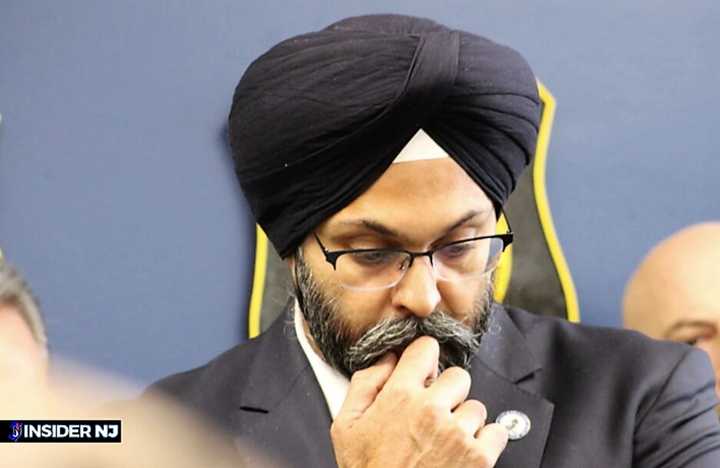“Experts agree that one of the most effective ways to reduce police use-of-force and death-in-custody incidents is by expanding the use of Crisis Intervention Teams (CITs), which help officers respond to situations involving individuals with mental health issues,” Grewal said.
However, CIT training “is expensive and typically available only from a handful of outside vendors,” he said.
To reduce entry barriers, Grewal said, his office is “exploring the capacity to build a statewide CIT training program.”
As a first step, the state will launch a pilot program, using an outside vendor, with police departments in Atlantic City, Paterson, Trenton, and Millville, as well as New Jersey State Police troopers assigned in Trenton, he said.
The attorney general launched an “Excellence In Policing Initiative" just six months ago, with help from other law enforcement leaders.
Grewal said Tuesday that he’s focusing on updates to that plan.
Holding police to the highest professional standards, training officers to de-escalate situations and heightening response to civil rights incidents are among the keys he cited.
Grewal also said he'll also issue a directive before the end of this year that will “revise and update" his office's use-of-force policy "for all 36,000 law enforcement officers in New Jersey.”
He said he’ll “consult widely with stakeholders and draw on data collected” through his department’s new use of force portal.
The statewide portal, which will be expanded in July, will “allow for the gathering and meaningful analysis of uniform use-of-force data from all law enforcement agencies in New Jersey,” the attorney general said.
“The tragic killing of George Floyd reminds us that our country has a long way to go, not only in healing our nation’s racial divides, but also in addressing the systemic and implicit biases that affect all Americans,” Grewal said.
“We’re in this for the long haul, not because it’s easy or popular but because it’s the right thing to do,” he said.
Grewal said his office has consulted closely with law enforcement leaders, community leaders, police unions, civil rights groups, and victims’ advocates “to ensure that policing reforms are developed with meaningful buy-in from all relevant stakeholders.”
The results, he said, include “progressive policies with broad support across law enforcement.”
Indeed, law enforcement leaders welcomed the enhancements Tuesday -- particularly the pilot crisis intervention training program.
“Our law enforcement officers are charged with the service and protection of all the citizens of New Jersey,” NJ State Police Supt. Col. Patrick J. Callahan said. “This training will equip them with additional tools to assist those experiencing a mental health crisis.”
Paterson Public Safety Director Jerry Speziale thanked Grewal for “recognizing the importance and value of CIT training and its impact on the lives of first responders and the communities they serve.
“The 20 spots afforded our agency will provide critical training in the area of crisis intervention, so vital to developing a culture of tolerance, understanding and cooperation among law enforcement, mental health professionals and those in the community struggling with mental illness,” Speziale said.
“The most effective police officer is a highly-trained police officer,” Mercer County Prosecutor Angelo J. Onofri said, adding that law enforcers are “often the first to interact with those with mental illness."
“There are many challenges to these interactions,” Onofri said, “and by expanding our officers’ knowledge of mental health and providing them with the skills to respond to those in crisis, we can advance public safety and reduce the stigma commonly associated with mental illness.”
Grewal said he has other initiatives in mind, as well.
Unlike the federal government, New Jersey currently lacks a team of community-relations specialists who can respond in the community following a major civil rights incident. Grewal said he intends to develop such a team sometime this year.
He also said his office will present a proposal to New Jersey’s Police Training Commission (PTC) later this month for a statewide professional licensure program for police, as well as a framework for enhancing all police training.
“Fixing a system that is fundamentally broken requires us to acknowledge the erosion of trust between communities of color and law enforcement,” Murphy said. “From day one, my administration has been committed to bringing transformational change to community policing and police culture in New Jersey.
"Under Attorney General Grewal’s leadership, we will take further steps to build upon our progress and deepen the well of trust in our communities.”
Click here to follow Daily Voice Edison and receive free news updates.
